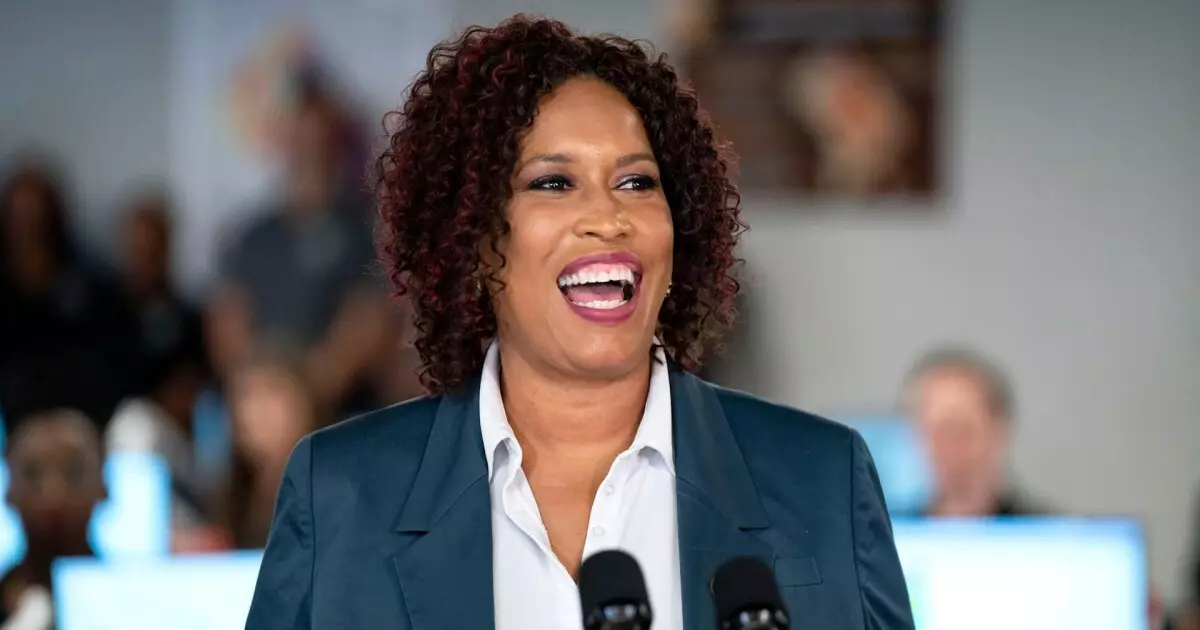The political atmosphere in Washington, D.C., is not just charged; it’s a brewing fiscal storm. The city’s financial health hangs by a thread, with a staggering $1.1 billion deficit looming due to a missing budget provision after the recent continuing resolution (CR) passed by the House. This oversight isn’t merely a bureaucratic hiccup; it signals deeper systemic issues rooted in a controversial relationship between the federal government and the District. The stakes are exceptionally high as Mayor Muriel Bowser expresses grave concern that further delays in resolving this issue could necessitate drastic measures to maintain fiscal balance, placing the city’s future at risk.
The Political Conundrum: Congressional Ignorance or Intent?
Amid a convoluted web of budgetary negotiations, the House seems distracted by a plethora of complex issues, including compromise talks and an impending two-week recess. This raises an unsettling question: Is this mere incompetence or a deliberate act of oversight? One cannot help but wonder if the needs of Washington, D.C., are being overlooked in favor of national political theater. The ongoing tug-of-war in Congress has created an environment where the city’s financial future feels like collateral damage in a larger game of political chess.
To compound the situation, Mayor Bowser’s comments about the necessity of congressional dialogue underscore the urgent need for cooperation and action. Yet, who in Congress will step up to address such a critical issue? It seems absurd that a city at the center of American governance has to plead for permission to manage its own budget. The federal oversight of D.C.’s finances seems increasingly outdated and unnecessary, indicating a call for autonomy rather than dependency.
The Human Cost of Budget Mismanagement
What is often lost in the numbers and political rhetoric is the human cost of these budget challenges. The repercussions of a dwindling economy affect real people—local businesses struggle to stay afloat while residents face job insecurity. Mayor Bowser’s projection of potential job losses for 40,000 federal employees within four years is a staggering statistic that outlines the human toll of current federal policies aimed at downsizing. The District cannot simply hope for the return of federal workers; it must become resilient by fostering local economic growth. This requires investment and support for the entrepreneurial ecosystem, an initiative that will take center stage in the coming months.
The notion that the city must not only maintain but expand its economic activity speaks volumes about the urgency of the situation. This is not just about surviving but thriving. The mayor’s call for new businesses and activities is a clarion call for innovative strategies to overcome a tide of fiscal despair. The obstacles are significant, but with focused leadership, there are paths forward.
Quality of Life and Urban Aesthetics on the Line
Beyond finances, there’s also the quality of life for residents to consider. Mayor Bowser’s observations about the neglect in maintaining public spaces resonate deeply, pointing to broader challenges faced in urban governance. Instances of overflowing trash cans during the renowned Cherry Blossom season lay bare the importance of both aesthetics and function in city management. The city is not only a governmental hub but also a place meant to inspire and attract both residents and tourists.
Efforts to beautify the District should go hand-in-hand with fiscal responsibility. Simply put, a thriving city needs to be visually appealing and functionally sound. Overcoming the current budgetary crisis will not only aid the financial bottom line but ensure a livable, welcoming environment for future generations. The uptick of national pride often hinges upon the cleanliness and vibrancy of its urban centers, making the need for immediate action all the more pressing.
Amid fiscal uncertainty and bureaucratic delays, it is evident that Washington, D.C., requires urgent solutions that transcend mere budget negotiations. Whether through empowered local governance, innovative economic growth strategies, or a fresh perspective on urban management, the path forward must be clear. It is time for Congressional leaders to recognize the weight of their decisions and act promptly for D.C.’s future. If they do not, the consequences will ripple across the city and beyond, affecting both its people and the lasting legacy of its governance.


Leave a Reply